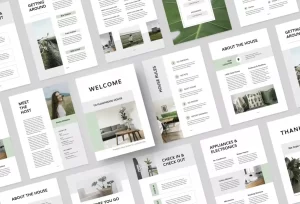The GermGuardian console air purifiers have the highest CADR rating; a bit over 200 for smoke, pollen, and dust CADR. They are more capable of removing small particles from indoor air but they are also more expensive. Tower air purifiers by GermGuardian are the most popular ones. Then have a 100+ CADR rating.
Does air purifier help with Covid?
When used properly, air cleaners and HVAC filters can help reduce airborne contaminants including viruses in a building or small space. By itself, air cleaning or filtration is not enough to protect people from COVID-19. … Others indicate they use High Efficiency Particulate Air (HEPA) filters.
What does a GermGuardian air purifier do?
GermGuardian claims their 3-in-1 air purifier is equipped to remove the following air contaminants: pet dander, pet hair, dust mites, pollen, home construction particles, smoke residue, and chemical and organic odors.
Does the GermGuardian produce ozone?
Emissions. The manufacturer states that the UV-C bulb used in GermGuardian air purifiers does not produce ozone. … PCO installations will make an odor as they burn off accumulated particulate after a period of operation with UV off.
Is Germ Guardian Air Purifier safe?
Titanium Dioxide is activated by UV-C light and, in combination, kills germs but also removes odor molecules, smoke, cooking odor, and even pet odors. When UV-C light is on, you will see the blue light on the front panel. UV-C light is safely contained inside the air purifier, and using it is perfectly safe.
Where are Germ Guardian Air purifiers?
List of Air Purifier Brands Made in the USA
| Brand | Headquarters |
|---|---|
| Austin Air | Buffalo, New York |
| Oransi | Raleigh, North Carolina |
| Guardian Technologies (Germ Guardian) | Euclid, Ohio |
| Alen | Austin, Texas |
How long does Covid last air?
Transmission of COVID-19 from inhalation of virus in the air can occur at distances greater than six feet. Particles from an infected person can move throughout an entire room or indoor space. The particles can also linger in the air after a person has left the room they can remain airborne for hours in some cases.
Does HEPA filter coronavirus?
Oct. 11, 2021 — A combination of HEPA filters and UV light was effective in reducing airborne COVID particles from the air of hospitals in the first test of its kind, researchers reported.
How do you ventilate a room in Covid?
Ventilation in Homes Refer to CDC and ASHRAE guidance on isolating COVID-19 patients and protecting people at high risk. Opening windows and doors (when the weather permits), operating window or attic fans, or running a window air conditioner with the vent control open increases the outdoor ventilation rate in a home.
How long does GermGuardian filter last?
GermGuardian air purifier filters should be replaced every 68 months depending on use. You can always vacuum off your carbon filter layer in order to extend the life of your filter.
Is Levoit a good air purifier?
Levoit Core 300 air purifier is an excellent and compact air purifier that is easy to use and has good room coverage. The purifier is suitable for filter particulate allergens and light odors from small to medium-sized rooms. It is completely ozone-free and safe for kids and pets too.
Is it OK to leave air purifier on all night?
It is perfectly safe to leave an air purifier on all day, all night even if you’re not around or out of town. Air purifiers are designed to run 247 that will not overheat, break down, or release harmful byproducts as it is typically powered by a mechanical HEPA filtration.
Can air purifiers make you sick?
Air purifiers can’t make you sick because they work to clean the air. Air purifiers don’t cause a sore throat. Some ionic air purifiers may cause throat irritation in people with respiratory conditions, but it doesn’t cause you to cough. Air purifiers don’t dry out the air.
Are air purifiers a waste of money?
So, it’s only typical that you may be wondering are air purifiers a waste of money. They’re worth it, according to the EPA, as they’re an excellent way to enhance your Kearney residence’s indoor air quality.
Can ionizers be harmful?
The most common air ionizer dangers include throat irritation, coughing, chest pain and shortness of breath, as well as an increased risk of respiratory infections. However, these ionizer air purifier side effects only occur if you inhale ozone. Not all ionic air purifiers pose these dangers.
What are ionizers good for?
Air ionizers use ions to remove particulates, microbes, and odors from the air. Air ionizers make the air in a room healthier for people to breathe, especially for people suffering from allergies, asthma, and other respiratory-related ailments.
Can you overuse an air purifier?
Avoid Ozone gas-producing air purifiers: Overexposure to ozone gas is extremely dangerous. Not only can it cause coughing, wheezing, and a tightening of the chest, in some extreme circumstances it can be fatal. Even a small amount can cause inflammation in the throat and lungs.
Is Levoit a Chinese company?
Is Levoit a Chinese company? No, as Levoit is a California-based company. Their main office is in Anaheim and they are a US-based company. … Levoit has some units if you are looking for the best air purifier for 300 square feet, which is ideal for small bedrooms and offices.
Is Levoit Made in USA?
Levoit is created and supported by a professional team of engineers, product developers, and support members. … The products are designed in the United States. Rest assured that LEVOIT always stands behind our products and customers, and we will take responsibility if your item has an issue.
What air purifiers are not made in China?
What are the best air purifiers that are made in the USA?
- Our #1 USA air purifier. RabbitAir MinusA2.
- Best unit for large spacess. Alen BreatheSmart 75i.
- The best made in USA air purifier. Austin Air Healthmate.
Can you get Covid twice?
Why people are getting COVID-19 again The CDC says cases of COVID-19 reinfection remain rare but possible. And with statistics and recommendations changing so quickly and so frequently, that rare status could always change, as well.
How long does Covid stay in the air outdoors?
Under experimental conditions, researchers found that the COVID-19 virus stayed viable in the air for three hours. The researchers estimate that in most real-world situations, the virus would remain suspended in the air for about 30 minutes, before settling onto surfaces.
Is it safe to use a fan inside the house during COVID-19?
Evaporative coolers (or swamp coolers) and whole-house fans can help protect people indoors from airborne transmission of COVID-19 because they increase ventilation with outside air to cool indoor spaces. However, by itself, an evaporative cooler or whole-house fan is not enough to protect people from COVID-19.
What size is a Covid droplet?
The World Health Organization (WHO) and Centers for Disease Control and Prevention (CDC) postulate that the particles of more than 5 m as droplets, and those less than 5 m as aerosols or droplet nuclei (Siegel et al., 2007; WHO, 2014).
Does iWave produce ozone?
iWave products are patented ion-generating devices that produce the highest available ion outputs and do not create ozone or harmful byproducts, which are different than current ionizers on the market.
Do air purifiers work?
The bottom line. Research shows that filtering the air can indeed help to remove harmful particles from indoor spaces, particularly allergens, smoke, and mold. Still, air purifiers work best in conjunction with proper filtration and home cleaning techniques.
Will you get Covid if someone in your house has it?
A: It’s not 100% guaranteed that just because one person in the household gets the virus that everybody else is going to. That doesn’t mean it can’t or won’t happen, but it’s not universal that everybody is going to get sick when COVID-19 is in your house.
Is it safe to open windows during coronavirus?
Bringing fresh, outdoor air into your home helps keep virus particles from accumulating inside. If it’s safe to do so, open doors and windows as much as you can to bring in fresh, outdoor air. While it’s better to open them wide, even having a window cracked open slightly can help.
Does coronavirus survive freezing temperatures?
On the other end of the spectrum, at 40 degrees C, or 104 degrees F, and 80% humidity, the viruses survived for less than 6 hours. This suggests that coronaviruses survive better on surfaces at colder temperatures. It is also expected that the virus would survive being frozen.


